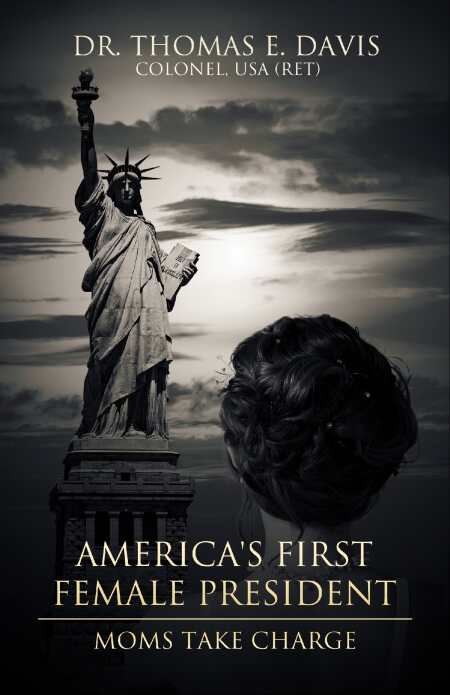America's First Female President ... 2016?
Moms Take Charge
Documenting the history of changing values in American politics, the author attempts to assert the importance of women in politics.
In this brief book, Thomas E. Davis asserts that America is in decline and argues that the country’s survival as a democratic republic depends upon the election of a female president. Misogyny and gender bias have prevented women from attaining positions of high office, and the author endeavors to break down those barriers to success.
Routing gender inequity in American politics is a noble and broad-minded pursuit, and Davis indicates that his book’s central thrust is gender bias. That isn’t entirely accurate. America’s First Female President … 2016? shifts focus in the first chapter and becomes a polemic against the state of the nation, politicians, society’s denigration of the Judeo-Christian values on which Davis believes the country was founded, political correctness, and homosexuality. Readers who were first intrigued by the book’s progressive declarations will likely feel duped, and those who do not share its conservatism may be offended by its invective.
Davis’s politics comprise a take-back-America agenda commonly held by today’s Tea Party conservatives. The book says that to understand how America has been changed by those who push an ultraliberal agenda, it’s necessary to understand how America began. Davis begins fourteen thousand years ago and names the Paleo-Americans as the first inhabitants of North America. He expounds on our “Euro-Asiatic and Judeo-Christian heritage,” describes George Washington as God’s emissary sent to guide this “neophyte but God-loving nation,” and states that America’s downturn began when the Democratic Party was founded during Andrew Jackson’s presidency.
This exploration of American history neglects women and their hard-won political and social gains, though Davis applauds Susan B. Anthony, Lucretia Mott, and Alice Paul for their efforts toward women’s equality. Michele Bachmann, Sarah Palin, and Kay Bailey Hutchison are endorsed as presidential candidates, yet there isn’t a discussion about their political stance or acumen, the obstacles to achievement they may face, or ways to close the gender gap. It remains unclear why Davis believes women are qualified for the presidency other than because they possess the acuity to budget money and promote high moral standards and a “cleaner, healthier way of life.”
Davis composes well-articulated narratives about illnesses he has suffered and their course of treatment to make a successful, analogous argument for curing the nation’s ailments. However, jumbled phraseology often obscures clarity, as in: “There exists a humanistic theory of evolution that propounds the theory that all humanity as we know it today is an extension of an evolution process that states Homo sapiens originated in Africa.” And the book suffers from incorrectly attributed source material and punctuation errors.
Ultimately, the book’s rancor clouds the arguments. It’s difficult to support punditry that demands the eradication of homosexuality, describes President Obama as a “long, lanky half-white,” and characterizes “deadbeat dads and their slothful offspring” as a blight on the nation. Impolite political discourse advances little but ill will, and America’s First Female President … 2016? is a missed opportunity to jump-start a vital discussion about the future of women in politics.
Reviewed by
Amy O'Loughlin
Disclosure: This article is not an endorsement, but a review. The publisher of this book provided free copies of the book and paid a small fee to have their book reviewed by a professional reviewer. Foreword Reviews and Clarion Reviews make no guarantee that the publisher will receive a positive review. Foreword Magazine, Inc. is disclosing this in accordance with the Federal Trade Commission’s 16 CFR, Part 255.

